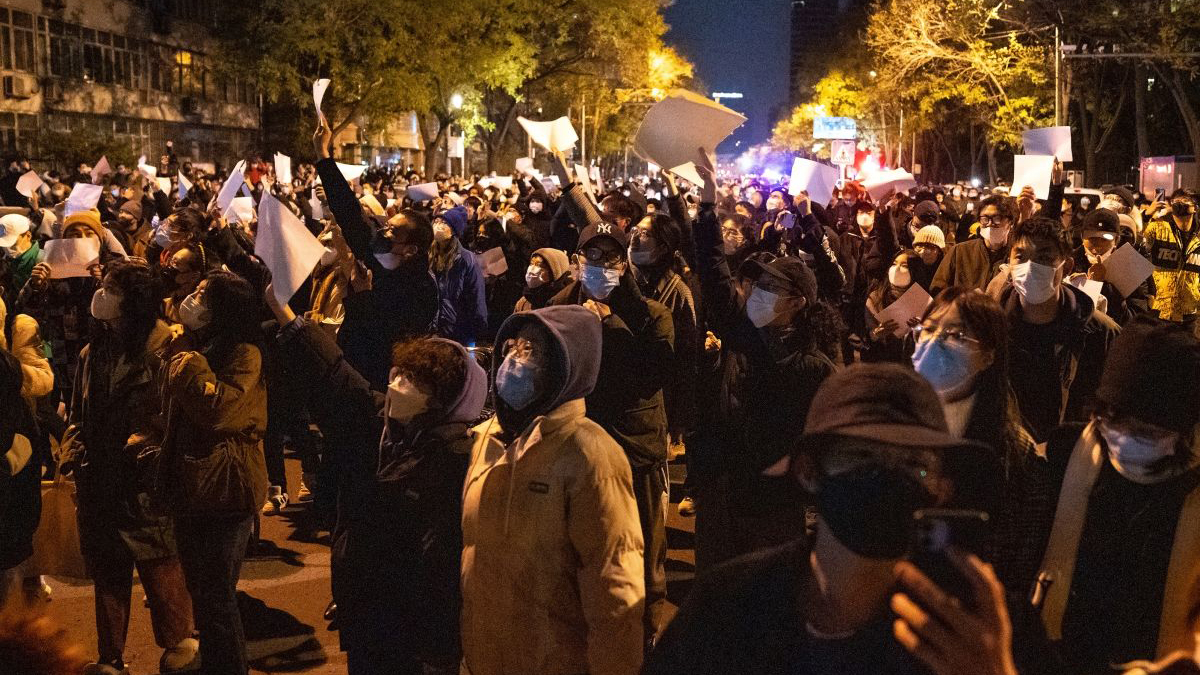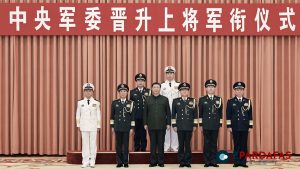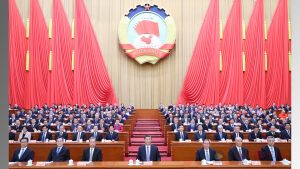
White Paper Protests: A Year On, Dissent Lingers Amidst Fear and Hope

In a rare display of dissent against China’s ruling Communist Party, the White Paper protests that erupted across the country a year ago continue to resonate, leaving participants torn between hope and fear. The movement, sparked by frustration over strict Covid-19 restrictions and a broader discontent with the leadership, challenged the authority of President Xi Jinping and ultimately led to a crackdown by Chinese authorities.
Huang Yicheng, one of the protesters who took to the streets in Shanghai, recounted the transformative impact the White Paper protests had on his life. After being arrested and narrowly escaping police custody, he lived in fear for months, ultimately fleeing to Germany on a student visa, where he is now seeking asylum.
The movement, symbolized by protesters holding blank white sheets to represent unspoken grievances, quickly spread to major cities like Beijing, Chengdu, Xi’an, and Wuhan. However, the swift and forceful response from authorities led to on-the-spot detentions, extensive surveillance, and a subsequent information blackout.
Zhang Junjie, who participated in the protests in Beijing, faced severe consequences as university authorities labeled his actions as a “sudden mental illness.” Diagnosed with schizophrenia and admitted to a psychiatric hospital, Junjie’s story highlights the lengths to which the Chinese authorities went to suppress dissent.
The protests drew comparisons to the Tiananmen Square protests of 1989, which resulted in a bloody military crackdown. Similarly, the White Paper movement faced censorship, with records scrubbed online, underscoring the effectiveness of Beijing’s sophisticated censorship apparatus.
Despite the crackdown, some participants who managed to leave China expressed their disappointment over the lack of freedom and democracy. An anonymous protester from Chengdu, now in France, reflected on the initial excitement but noted the disappearance of discussions about the protests, highlighting the palpable fear that still lingers.
The impact of the White Paper movement, however, extends beyond China’s borders. Protests organized by Chinese expatriates in Japan, the EU, and the US mirrored the sentiments of those within the country.
Maya Wang, interim China editor at Human Rights Watch, noted that the movement prompted soul-searching among young, educated Chinese. The sluggish economy and Beijing’s heavy-handed response contributed to more people leaving China, challenging the decade-long narrative of carefully-cultivated nationalism.
While the White Paper protests underscored the resilience of the human spirit in China, Steve Tsang, head of the China Institute at the School of Oriental and African Studies in London, emphasized that President Xi Jinping’s firm grip on power requires continual success. As dissent simmers beneath the surface, the question remains whether a spark could once again set the prairie on fire, challenging the status quo.














Comments